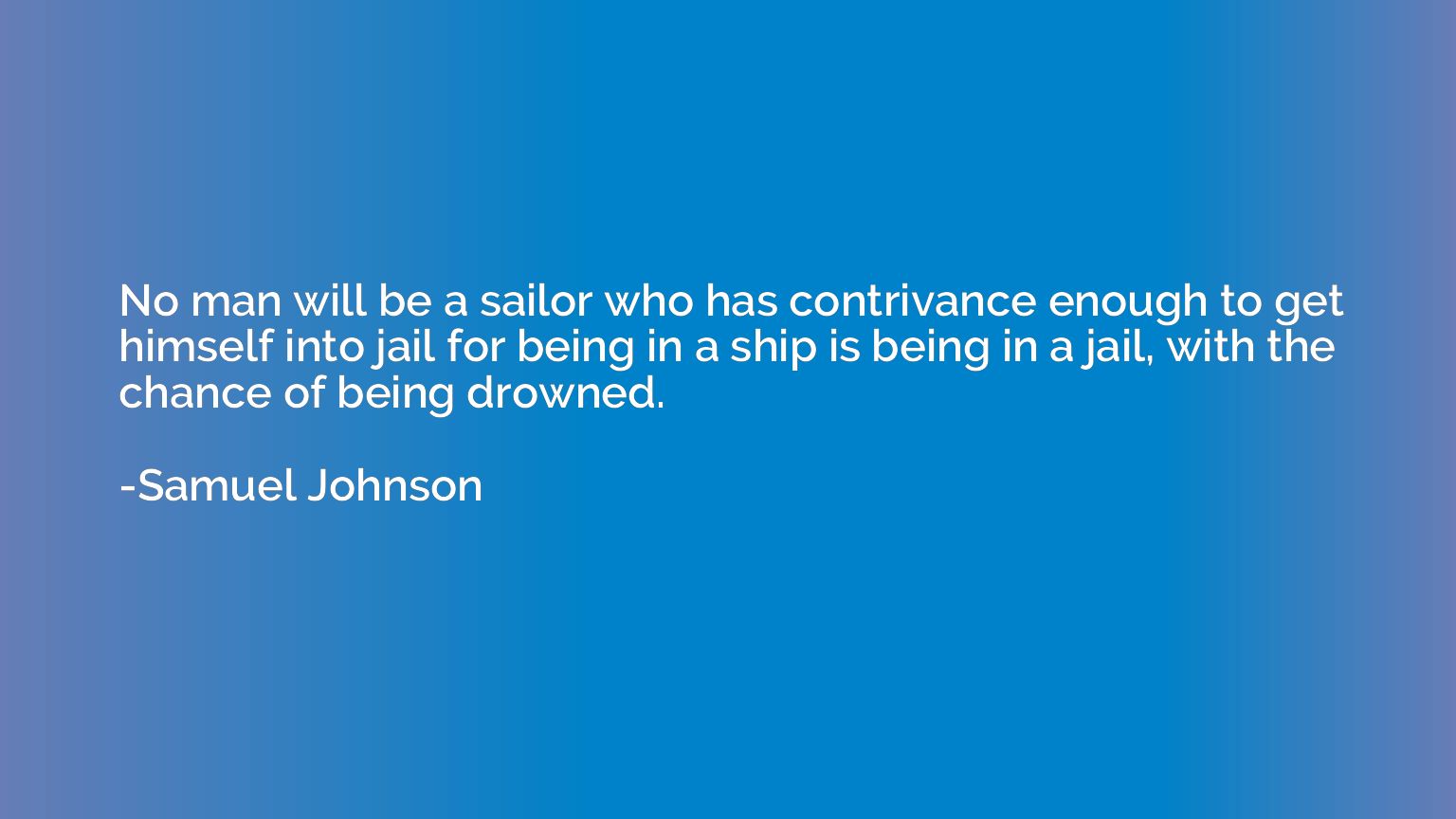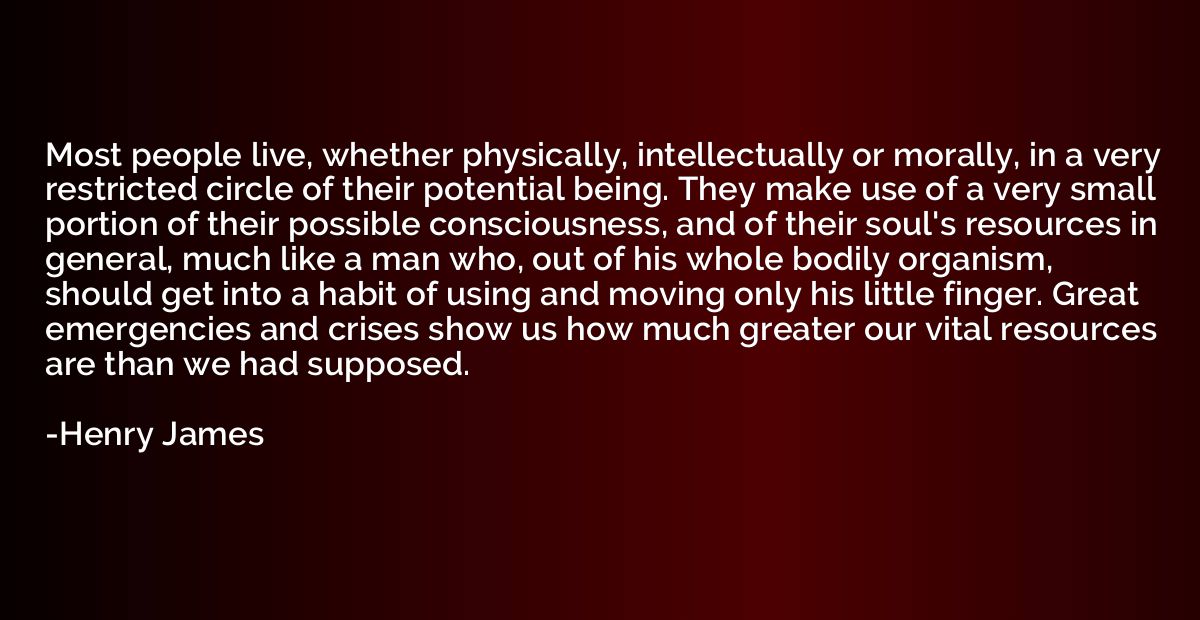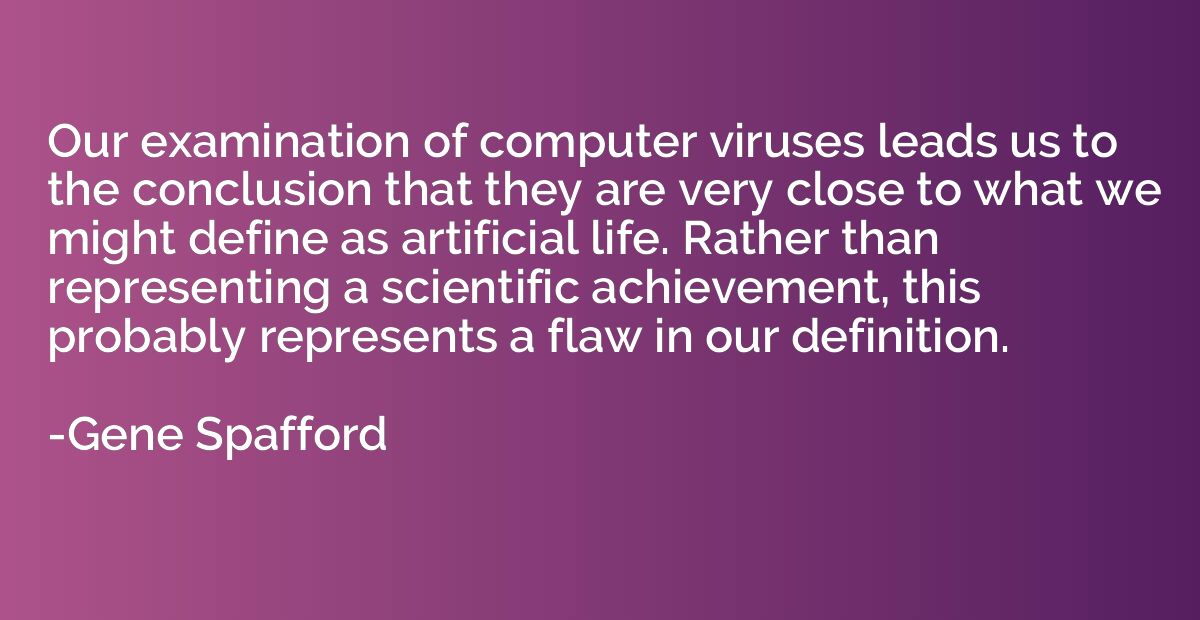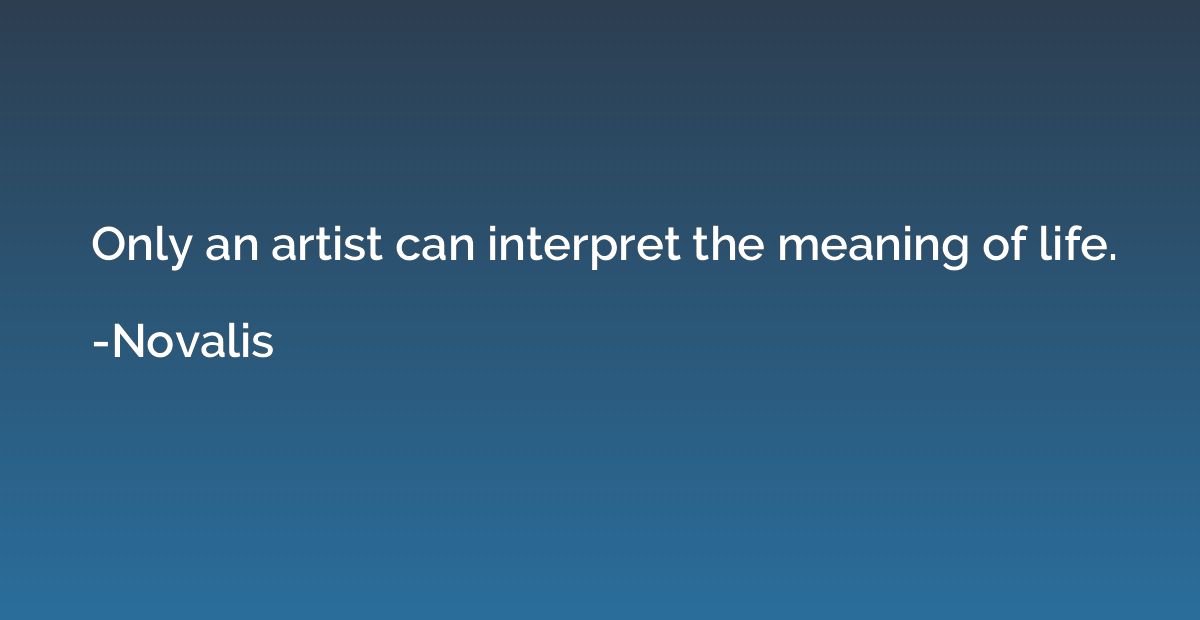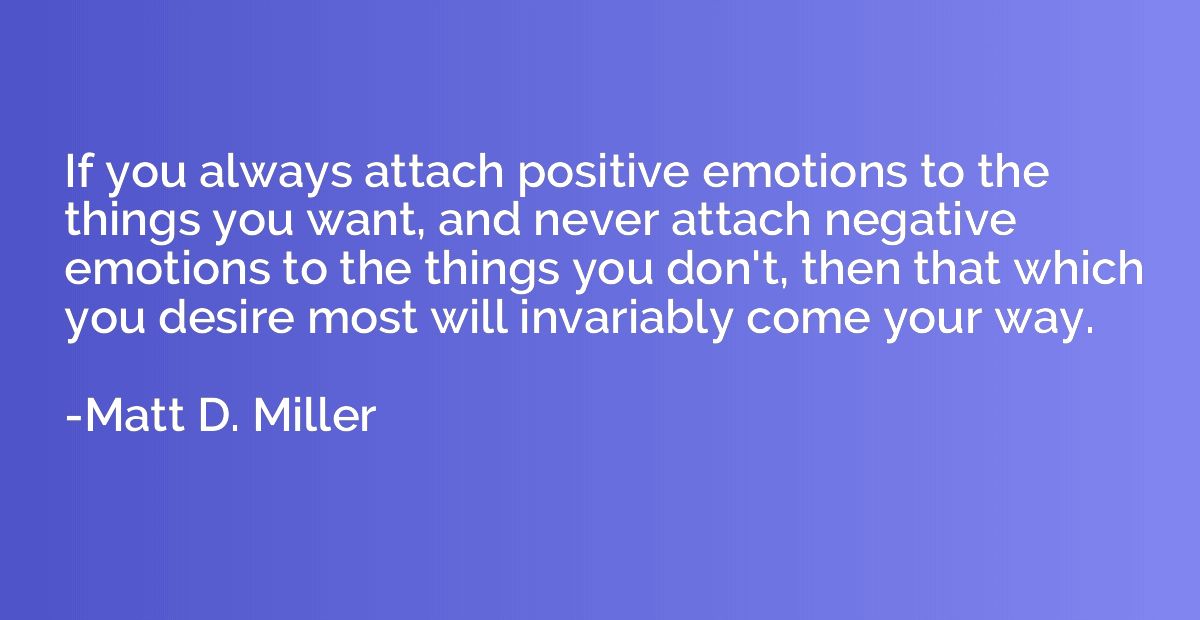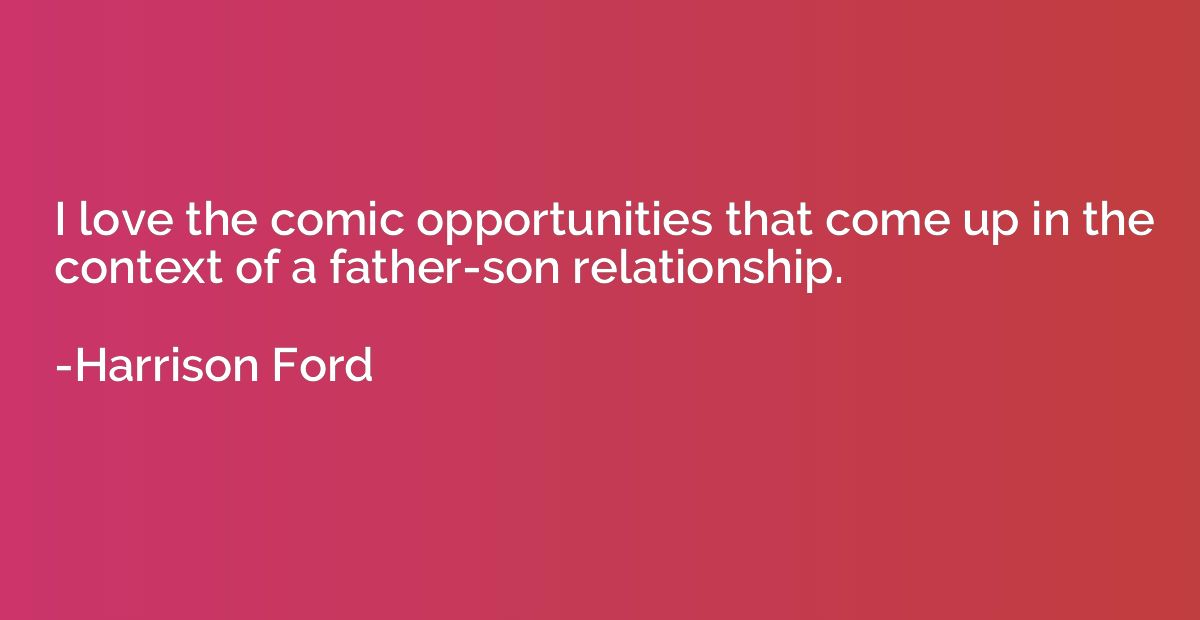Quote by Aleksandr Solzhenitsyn
It is not because the truth is too difficult to see that we make mistakes... we make mistakes because the easiest and most comfortable course for us is to seek insight where it accords with our emotions - especially selfish ones.
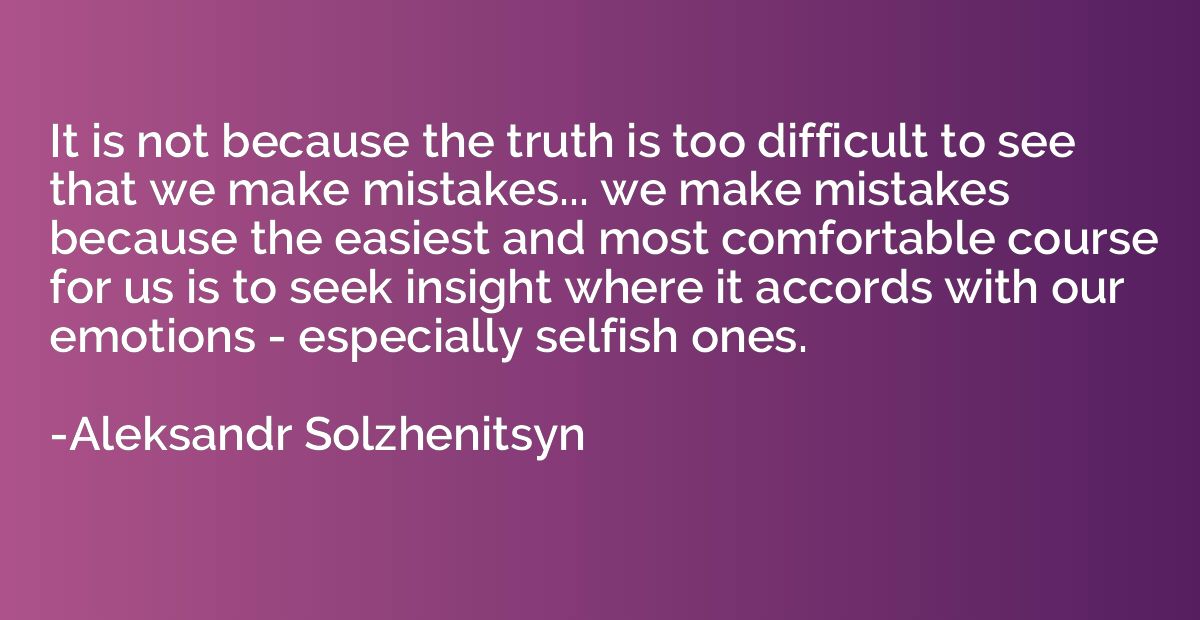
Summary
This quote suggests that our tendency to make mistakes does not arise from the complexity or difficulty of understanding the truth, but rather from our inclination to shape our beliefs around our emotions, particularly selfish ones. It implies that instead of objectively seeking insight and understanding, we often choose the path that aligns with our personal desires and feelings, even if it may not be based on truth or rationality. In essence, our own biases and emotional attachments can cloud our judgment and lead us astray, resulting in errors and mistakes.



